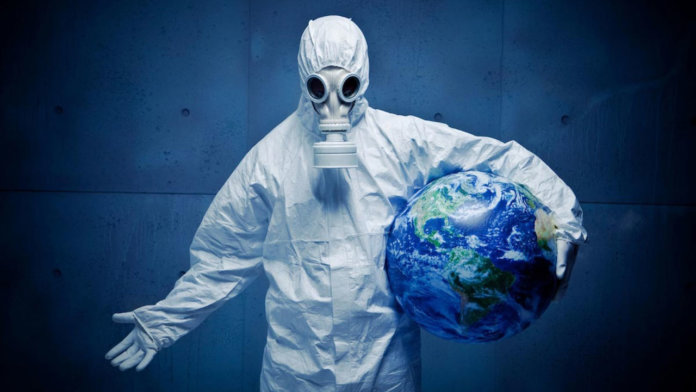The COVID-19 coronavirus pandemic is making a difference in the lives of most people on Earth, whether they like it or not. And not all of these changes will be for the worse. Here are the top 10 things related to the Wuhan coronavirus that could change our lives forever.
10. Remote work from home
 Before the spread of the COVID-19 coronavirus infection, only 7% of American workers were able to work from home. This does not mean that 7% worked from home - it just means that 93% of Americans said they did not consider telecommuting as an option.
Before the spread of the COVID-19 coronavirus infection, only 7% of American workers were able to work from home. This does not mean that 7% worked from home - it just means that 93% of Americans said they did not consider telecommuting as an option.
Now, during quarantine in different countries, including Russia, work from home is a necessity. There are no exact statistics yet on how many people work remotely around the world, but Cisco said its video conferencing software in China generates 22 times more traffic than it did before the outbreak.
It is likely that many people will continue to work from home after the pandemic is over. And this coronavirus-related change could help improve life satisfaction. On average, commuting to work takes 20 minutes one way, and experts say those 20 minutes impact job satisfaction as negatively as a 19% cut in wages.
9. Development of telemedicine
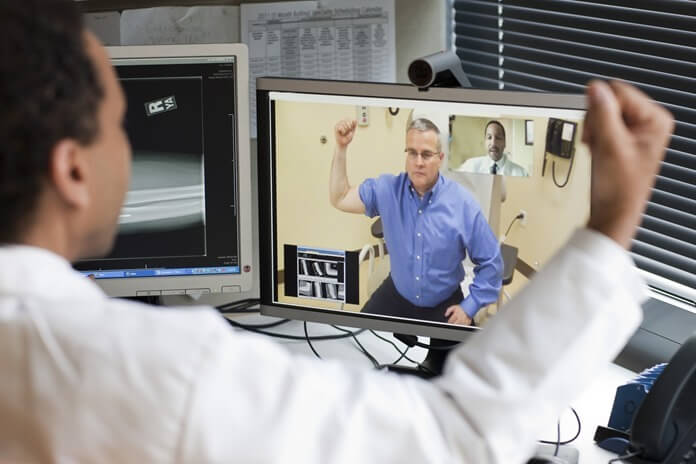 For years, telemedicine has been on the Internet margins, both in terms of costs and user confidence in online medical consultations. But the need for self-isolation of people in different countries of the world can raise the popularity of telemedicine to a height unattainable before. And the profession of an online doctor can become one of the most demanded professions of the future.
For years, telemedicine has been on the Internet margins, both in terms of costs and user confidence in online medical consultations. But the need for self-isolation of people in different countries of the world can raise the popularity of telemedicine to a height unattainable before. And the profession of an online doctor can become one of the most demanded professions of the future.
By staying at home and making a video call to a doctor, patients do not come into contact with people who may be infected with coronavirus in the queue. And, most importantly, they do not distract doctors from patients in need of intensive care.
8. Accelerating enterprise automation
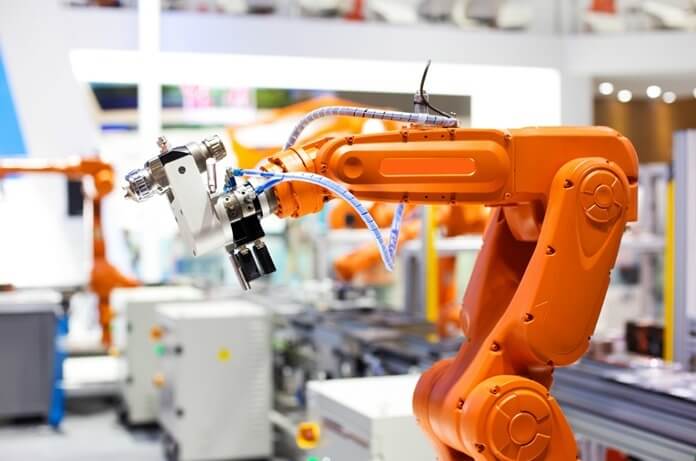 During the quarantine due to COVID-19, companies that use robotic technology extensively found themselves in a better position than firms that use mostly human labor.
During the quarantine due to COVID-19, companies that use robotic technology extensively found themselves in a better position than firms that use mostly human labor.
For example, industrial robot company Caja Robotics said it saw a 25% increase in requests over the past 30 days. After the coronavirus epidemic, many companies can be expected to resort to large-scale automation.
China has already begun replacing couriers with unmanned aerial vehicles, and they are faster and safer than humans. In the Middle Kingdom, they even experimented with robots in hospitals, where smart machines measure temperature, bring food to patients and disinfect the room.
7. Dissemination of online learning
 Homes during the raging SARS-CoV-2 are not only adults, but also schoolchildren and students. However, the educational process must be continuous, so some Internet services made free by the coronavirus, opened unlimited access to the entire school curriculum. And many educational institutions have switched to distance learning.
Homes during the raging SARS-CoV-2 are not only adults, but also schoolchildren and students. However, the educational process must be continuous, so some Internet services made free by the coronavirus, opened unlimited access to the entire school curriculum. And many educational institutions have switched to distance learning.
It is unlikely that we will see widespread online education in the near future. Feedback from teachers, so far, is almost universally negative. The main problem is that online training is not available to those who cannot afford to buy a computer or access the Internet.
However, teachers who switch to telecommuting with students will receive an accelerated 21st century crash course. They are guaranteed to return to business as usual with ideas that transform the educational process into something newer and possibly better.
6. Online games - a new platform for learning
 This change is closely related to another thing that has become ubiquitous thanks to the coronavirus - distance learning. Many creative teachers and even students take advantage of young people's passion for online gaming to combine business with pleasure.
This change is closely related to another thing that has become ubiquitous thanks to the coronavirus - distance learning. Many creative teachers and even students take advantage of young people's passion for online gaming to combine business with pleasure.
For example, students in Rostov-on-Don gave a programming lesson in Minecraft by creating a virtual classroom, and the teacher used several markers and a sponge to explain the material.
And if distance learning becomes ubiquitous, online games will surely follow after it, in which it will be possible not only to entertain, but also to educate the younger generation.
5. Death of many small businesses
 The sad proverb “While the fat one dries, the thin one will die” can now be fully applied to small businesses, and not only in Russia.
The sad proverb “While the fat one dries, the thin one will die” can now be fully applied to small businesses, and not only in Russia.
Owners of small shops, cafes, sewing workshops, children's clubs, hairdressers, etc. are now suffering huge losses due to the churn of customers and the need to release their employees to quarantine due to COVID-19. But nobody canceled rent and other payments.
Broken entrepreneurs and their employees cannot buy goods and services, pay for loans, travel on vacation and educate children, and this entails the collapse of other businesses.
This sad picture becomes even darker with each passing day of the continuation of the quarantine, and will forever change the lives of many people, as well as the situation in the world in general.
4. Emphasis on privacy
 We now know that touching things like kissing and hugging other people, and even being in the same room with them, can be risky. And this knowledge will forever remain with those who survive 2020. Keeping your distance, refusing to shake hands or kissing friends, and washing your hands often becomes a habit that can become second nature.
We now know that touching things like kissing and hugging other people, and even being in the same room with them, can be risky. And this knowledge will forever remain with those who survive 2020. Keeping your distance, refusing to shake hands or kissing friends, and washing your hands often becomes a habit that can become second nature.
The comfort of being in the presence of other people can be replaced by greater comfort in their absence, especially in the case of strangers. Instead of asking, "Is there a reason to do this on the Internet?" we will ask ourselves, "Is there a good reason to do this in person?"
3. End of reliance on China
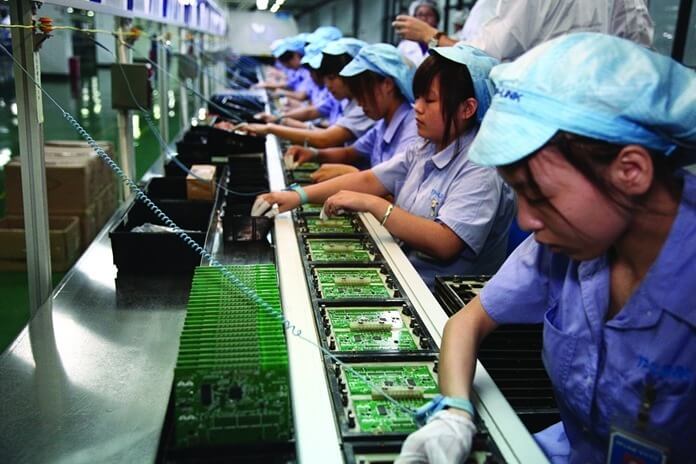 Until now, the world has relied on China as its largest manufacturing center. The Celestial Empire produces 20% of all goods on Earth. However, when China went into quarantine and most of its businesses shut down, it became clear how dangerous it was to rely on one country to supply the entire world.
Until now, the world has relied on China as its largest manufacturing center. The Celestial Empire produces 20% of all goods on Earth. However, when China went into quarantine and most of its businesses shut down, it became clear how dangerous it was to rely on one country to supply the entire world.
Some countries are already starting to move production back to their own borders, while others are talking about the need to start producing essential goods in several different locations.
2. Shift in geopolitics and possible growth of nationalism
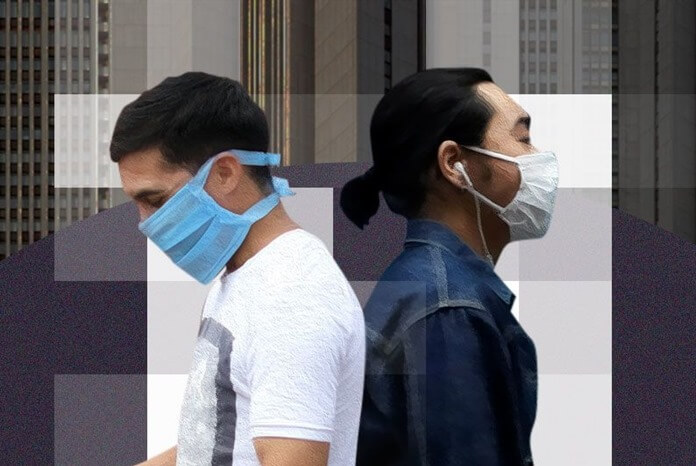 David S. Jones, professor of medical culture at Harvard University, explained in an interview with Business Insider that the notion of "guilt" during pandemics is a common tactic for governments around the world. They divide people according to such characteristics as religion, race, nationality, social class or gender identity.
David S. Jones, professor of medical culture at Harvard University, explained in an interview with Business Insider that the notion of "guilt" during pandemics is a common tactic for governments around the world. They divide people according to such characteristics as religion, race, nationality, social class or gender identity.
What we're seeing now: US President Donald Trump has labeled COVID-19 a "Chinese virus" that could have long-term discriminatory consequences for Asian Americans.
“With every country that closes its borders, there is a risk that if any kind of unification happens, it will be at the national level. At the end of this (unification), the English will say “we rallied and we did it on our own”, and the French will say the same thing, and the Italians will say the same ... so I think that the result of (such a unification) might be nationalism, ”Jones said.
1. Mass unemployment and the growth of protest sentiments
 COVID-19 is hitting human health, but it is hitting the global economy even more. According to Bloomberg analysts, in the worst case scenario, the global economy will receive less than 2.7 trillion. dollars this year. At the same time, Russia will miss 4.35 trillion. rubles.
COVID-19 is hitting human health, but it is hitting the global economy even more. According to Bloomberg analysts, in the worst case scenario, the global economy will receive less than 2.7 trillion. dollars this year. At the same time, Russia will miss 4.35 trillion. rubles.
And according to experts JP Morgan Chase 400,000 Americans will become unemployed in the next few weeks. They did not report about the Russians, but it is unlikely that the number of unemployed due to the coronavirus in our country will be significantly less.
While office workers have the opportunity to work remotely from home, unemployment will hit mainly small and medium-sized business workers and the low-skilled workforce. Experts are already predicting a revolution; analyst Katie O'Neill describes her as "Occupy Wall Street 2.0". Recall that the Occupy Wall Street action is a civil protest action that began in New York on September 17, 2011. They were organized to draw public attention to the "crimes of the financial elite" and call for radical changes in the economy.

